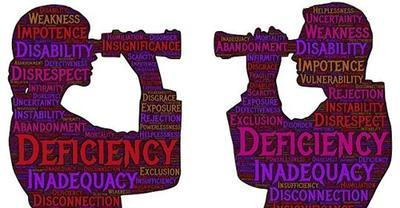
Negative feelings lead to poor performance, setting of a feedback loop. If you are a parent who wants to see your children do better, changing the feedback loop they're stuck in is the key to success. Claire Dorotik-Nana, LMFT shares her thoughts on why you should stop shaming your child.
While it is not hard to imagine that higher intelligence predicts higher test scores and better grades – it seems that these results affect – and are affected by – our emotions.
Using annual assessments of emotions and achievement in math in 3,425 German students from grades 5 through 9 conducted as part of the Project for the Analysis of Learning and Achievement in Mathematics (PALMA), researchers from the University of Munich, Australian Catholic University, University of Oxford, University of Reading, University of Konstanz, and Thurgau University of Teacher Education examined the association between students’ self-reported emotions, as measured by questionnaires, and their achievement, assessed by year-end grades and scores on a math achievement test.
The study had two interesting outcomes: First, students with higher intelligence had better grades and test scores, but those who also enjoyed and took pride in math had even better achievement. Specifically, students who experienced anger, anxiety, shame, boredom, or hopelessness had lower achievement. Second, achievement affected students’ emotions over time.
Stephanie Lichtenfeld, senior lecturer at the University of Munich, explains “Successful performance in math increased students’ positive emotions and decreased their negative emotions over the years” (Lichtenfeld, 2017). On the other hand, students with poor grades and test scores suffered from a decline in positive emotions and an increase in negative emotions, such as math anxiety and math boredom (Pekrun et al., 2017).
“These students become caught in a downward spiral of negative emotion and poor achievement” (Lichtenfeld, 2017).
The study’s finding that emotions influenced achievement held constant even after taking into account the effects of other variables, including students’ intelligence and gender, and families’ socioeconomic status. Moreover, the results extend beyond previous studies showing that emotions and academic achievement are correlated. Specifically, emotions appear to influence adolescents’ achievement over and above the effects of general cognitive ability and prior accomplishments (Pekrun et al., 2017).
Yet even while the authors of this study recommend that educators, administrators, and parents work to strengthen students’ positive emotions and minimize negative emotions related to school subjects, there is a class of parent that thinks differently. “Tiger moms” espouse controlling, shaming, and pressuring as a way to motivate children.
Yet, according to a new study by Cecilia Cheung, assistant professor of psychology at the University of California, Riverside, the sort of shame induced by Tiger Moms may have a more negative affect than they would like to think.
Studying nearly 350 mother/child pairs in China and the United States, Cheung and her team observed the pairs as they worked on a problem-solving task in a laboratory. Specifically the team watched for controlling and autonomy-supportive practices while the mother-and-child pairs interacted with one another. Additionally, before the visit to the laboratory, both mother and child reported on the mother’s parenting style, and the children responded to questions about their own emotional adjustment before and after the study.
Whether the parents were Chinese or American, the results were clear: heightened controlling parenting practices with attempts to intrude on children’s thoughts, feelings and behaviors, resulted in academic and emotional problems. In contrast, when parents were supportive, but hands-off, children felt encouraged to make their own decisions and flourished. Moreover, a mother’s control predicted a child’s dampened adjustment regardless of whether the child had reported it or it was witnessed by a member of the research team (Cheung et al., 2016).
While Cheung notes that there is a sizable amount of research indicating that a parent’s controlling practices leads to a child’s dampened academic and emotional functioning, it seems that, even in countries like China where controlling behavior is more common, shame has the same negative outcome – a downward spiral of negative emotion and reduced ability to learn.
Please see the link below to view the original article:
https://blogs.psychcentral.com/leveraging-adversity/2018/05/want-your-child-to-learn-faster-stop-shaming-them/?fbclid=IwAR3p2OCrZcME55sP0pTDRE4g-UXt-vV6XSMq6b-xsABMLFaFVHevO9KBvCA